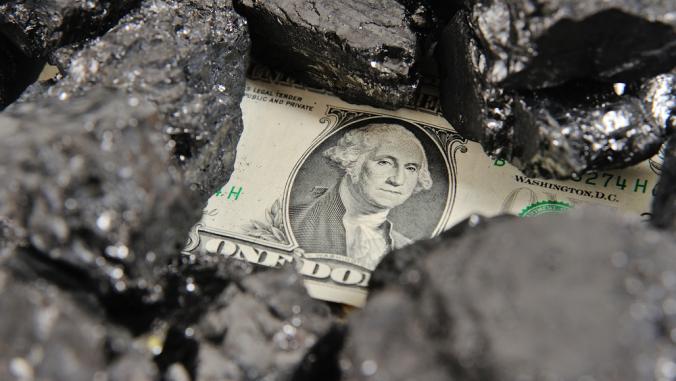Can the IT industry catalyze the shift to renewable energy?
Tech providers are looking to balance the neverending hunger for data storage with the transition to a low-carbon economy.

The information technology sector faces quite a conundrum when it comes to energy.
On one hand, demand for new data centers and power-hungry storage mechanisms is growing at a rapid clip thanks to the proliferation of mobile and cloud technologies. And the data centers needed to keep popular tech companies up and running aren't exactly light on energy consumption.
"Data centers are one of the largest and fastest growing consumers of electricity in the United States," according to the Natural Resources Defense Council. "In 2013, U.S. data centers consumed an estimated 91 billion kilowatt-hours of electricity — enough electricity to power all the households in New York City twice over — and are on-track to reach 140 billion kilowatt-hours by 2020."
The good news, however, is that tech companies also have shown more willingness than other sectors to compensate for some of that demand with increased investment in renewable energy.
At least 11 high tech firms, including Apple, Salesforce, Google and Facebook, have set 100 percent renewable energy goals. Although few of those companies have pinpointed a timeline for phasing out fossil fuels, plenty of other IT businesses are also working to cut their carbon footprint while also addressing perennial issues such as e-waste and heavy water consumption.
Hewlett-Packard, for instance, has signed a long-term Power Purchase Agreement, or PPA, to power its data center operations in Texas. That's according to Chris Librie, who oversees the company's Living Progress sustainability initiatives and discussed the energy deal during a GreenBiz Twitterchat this week, sponsored by HP.
A6a @HP agreed to purchase 112 MW of #windpower over the next 12 yrs from @SunEdison #livingprogress
— Chris Librie (@ChrisLibrie) Oct. 21
A6b Enough power to cover 100% our #datacenter energy demands in TX + we meet our Ops GHG goal 5 yrs early #livingprogress
— Chris Librie (@ChrisLibrie) Oct. 21
While hitting internal sustainability goals is often one motivating factor for companies to jump into green energy buying, more executives also are starting to speak publicly about the economics of the issue.
"We expect to have a very significant savings because we have a fixed price for the renewable energy, and there’s quite a difference between that price and the price of brown energy," Apple CEO Tim Cook said after the company's blockbuster $848 million solar energy buy earlier this year.
One caveat: Renewable energy buying still isn't easy, even for large tech companies, according to Marty Spitzer, who oversees U.S. climate and renewable energy policy for the World Wildlife Fund.
A5c Right now the system is set up that any company wanting RE has to become an expert in this very complex field. #livingprogress
— Marty Spitzer (@MartySpitzer) Oct. 21
A jigsaw puzzle of state and federal energy laws, coupled with varying amounts of resistance from incumbent utilities, make PPAs and other sorts of green power deals difficult to broker.
That realization has prompted groups such as WWF to step in to attempt to aggregate corporate demand for clean energy. The 2014 Corporate Renewable Energy Buyers' Principles is one example of an initiative uniting companies such as Abobe, 3M and eBay.
Still, internal financial calculations also loom large in multimillion-dollar energy transactions.
A5c C-suites tend to want a fast ROI—taking a longer view on payback might open more investments #livingprogress
— Chris Librie (@ChrisLibrie) Oct. 21
A5b Developers often want longer deals than corporate partners want to commit to #livingprogress
— Chris Librie (@ChrisLibrie) Oct. 21
While these issues have evolved over the course of many years, there is an urgency to consider when it comes to climate and energy issues with the United Nations COP21 Paris climate talks rapidly approaching.
As BSR's Aditi Mohapatra pointed out during the Twitterchat, one function of the international meetings will be a sort of gut check for how far companies are willing to go out on a limb to support climate policies aimed at increasing adoption of clean energy.
A11. IT co’s can set an ex of what is possible, the world will be watching. COP21 is great opp for leadership! @peterlmay #livingprogress
— Aditi Mohapatra (@AditiMohapatra) Oct. 21
Click here to read the full summary of the Twitterchat on IT and renewable energy.





